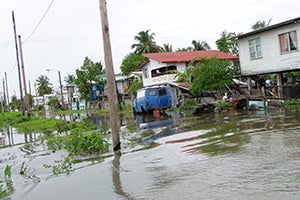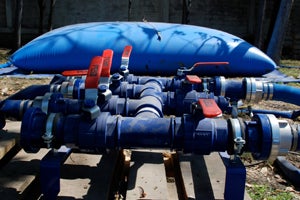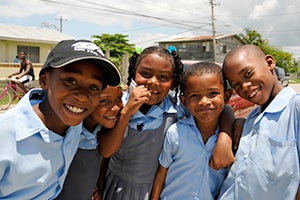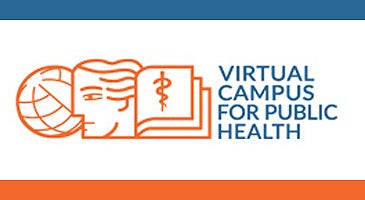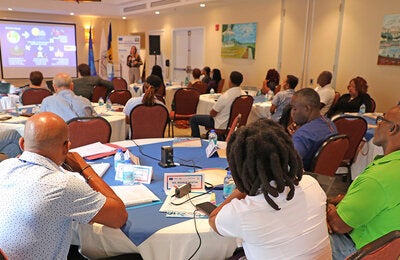Empowering Caribbean Action for Climate and Health
Project Objectives
To improve the capacity of Caribbean countries to reduce the negative impacts of climate change on health, using the One Health approach within the CARICOM/CARPHA Caribbean Cooperation in Health, phase IV (CCH IV) framework.
The Problem
Regional health systems and populations remain highly vulnerable to impacts from climate change causing: extreme weather; negative effects on food and water security; impacts to health and wellbeing; lost/reduced work capacity – migration; economic impacts; and inability to attain the Sustainable Development Goals (SDGs).
The Solution
Using a one-health approach within the Caribbean Cooperation in Health Phase IV (CCH IV) Framework, this programme will contribute to reduced mortality and morbidity from expected health consequences of climate change in Caribbean countries.
The Benefits
- Interdisciplinary/intersectoral approach
- Health adaptation plans to advance national climate change and health prioritization and financing
- Raised awareness in order to take action at the local, national and sub-regional level
- Increased national and subregional capacity to measure the health co-benefits of climate mitigation
Benefits
- Strengthening water, sanitation and food safety systems to be more resilient to climate change
- National climate informed disease surveillance and modelling systems
- An interdisciplinary cadre of climate change and health leaders from the Caribbean

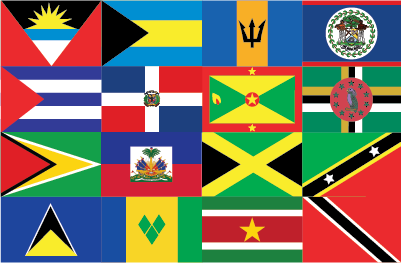
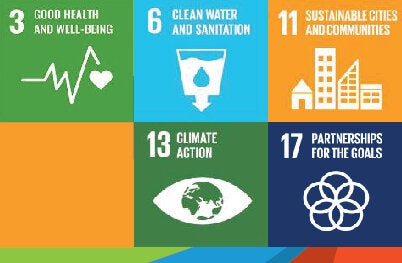
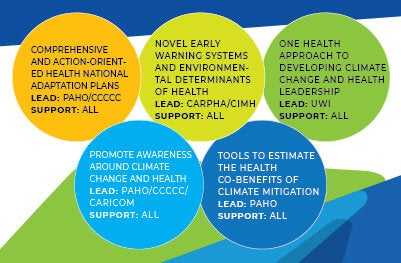
Strengthening Climate Resilient Health Systems in the Caribbean
Introduction
Executive Summary
The Problem: Climate change has had a significant impact on people’s health and well-being in the Caribbean region - disrupting physical, biological, economic, and ecological systems. These disturbances can exacerbate existing health inequalities and/or create new ones. Evidence and the recognition of climate and weather-related impacts on human health in the Caribbean has increased and Caribbean people have taken note of the abnormally hot days, floods, and repeated and prolonged droughts. It is further recognized how climate change negatively affects national socio-economic development. These events are impacting workers’ health, causing lost capacity and reducing labour productivity in vulnerable populations, already impacted by migration, and jeopardizing attainment of the United Nations Sustainable Development Goals.
Objectives:
- Strengthen the resilience of health services which, ultimately, aims at reducing the mortality and morbidity from the expected health consequences of climate change in the Caribbean countries.
- Work in a collaborative manner across organizations and nations to develop innovative products, methods and actions to prevent negative health consequences.
- Prepare systems to better adapt to the current unprecedented changes in the CARIFORUM community.
Overall objective: contribute to reduced mortality and morbidity from expected health consequences of climate change (CC) in Caribbean countries.
Outcome specific objective: Using a One Health approach within the CCH-IV framework, Caribbean countries have increased capacity to adapt and reduce the effects of CC on public health.
Outputs:
- Adapt and pilot PAHO/WHO tools to estimate health benefits of mitigation policies and interventions, in selected countries.
- Comprehensive Health Chapter in National Adaptation Plans (HNAP) for climate change prepared.
- Improved surveillance capacity of/by professionals working in the health sector and health-determining sectors, including through the development of climate-informed integrated systems and protocols to monitor/forecast selected environmental determinants of health (e.g. heat, water and sanitation) as well as health diseases (zoonosis, vector borne and foodborne diseases)
- Strong, effective Climate Change leadership among government officials, civil society, communities, environmental health professionals, and private sector through implementation of successful approaches, such as One Health.
COMPONENT 1: ADAPTATION AND TEST OF PAHO/WHO TOOLS TO ESTIMATE HEALTH BENEFITS
- Share, update or develop health situation profiles including, inter alia, the epidemiological profile, determinants of health, current national investments and recurrent costs in healthcare, financial gaps, coverage of the benefit packages, and cost-effectiveness of prevention schemes.
- Conduct Health-Climate Change impact, vulnerability and capacity analysis.
COMPONENT 2: COMPREHENSIVE HEALTH CHAPTER IN NATIONAL ADAPTATION PLANS
- Support to countries for the preparation and publication of their health chapters in National Adaptation Plans for climate change, which have to be coherent and consistent with applicable health laws and regulations.
COMPONENT 3: IMPROVED SURVEILLANCE CAPACITY OF PROFESSIONALS WORKING IN HEALTH AND HEALTH-DETERMINING SECTORS
- Strengthen inter-sectoral surveillance systems including the development of climate-informed integrated systems and protocols to monitor selected determinants of health (e.g. heat, water and sanitation) as well as health outcomes (zoonosis, vector borne diseases, foodborne diseases and antimicrobial resistance).
- Improve routine data collection, systems analysis, and spatial-temporal relationship of weather, and climate variability and climate change environmental determinants of health.
- Develop dedicated long-term surveillance capacity and instruments to strengthen in-country expertise to use, maintain and implement the climate resilient health systems including by developing or updating surveillance curricula (e.g. updating of monitoring aspects in UWI’s two-year curriculum in the One Health Leadership Series.
COMPONENT 4: STRONG EFFECTIVE CLIMATE CHANGE LEADERSHIP
- Support high-level advocacy to CARICOM Councils for Human and Social Development (COHSOD), Trade and Economic Development (COTED), and others as relevant, to operationalize the One Health approach and The Safe Hospitals Initiative.
- Conduct training of multi-sectoral stakeholders in “One Health” approach, “The Safe Hospitals Initiative” and other strategies, using the Climate Change and Health Leadership Series, to develop strong effective climate change leadership.
The programme is expected to attain the following targets by 2025:
- Number of countries with estimates of health benefits of mitigation policies and actions and using these estimates for policy decisions
- Number of countries with a comprehensive health Strategy and Action Plan in their National Adaptation Plans.
- Number of countries with integrated (multi-sectoral-One Health) timely surveillance reports that include
- climate sensitive diseases and conditions as well variability and climate change indicators, disaggregated by sex, age and vulnerable groups
- Number of pilot projects implemented and reported upon by graduates from Climate Change One-Health leadership series
- Number of regional policymakers advocating the One Health approach with support of this Action (disaggregated by sex and country).




